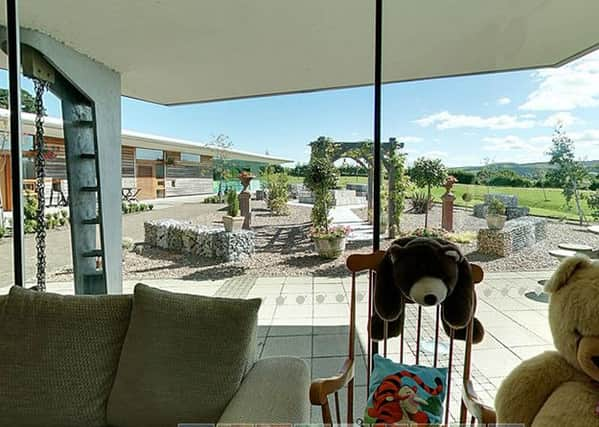Help is at hand for seriously ill Scots children


At Children’s Hospice Association Scotland (Chas) we see it as our role to work alongside families, health and social care professionals and other organisations to support children with life-shortening conditions.
Last year, CHAS was awarded funding to employ three full-time Diana Children’s Nurses (DCNs) posts to develop palliative care for babies, children and young people in Scotland. DCNs are named in tribute to Diana Princess of Wales and they are paid by a fund set up in 1997 in her memory.
Advertisement
Hide AdAdvertisement
Hide AdThe team has bold ambitions. Their aim is that families in Scotland receive enhanced palliative care; especially within the fields of neonatology, cancer services, intensive care and community support. Working with other organisations, they are actively raising awareness of the full range of care services available to children with palliative care needs and their families. Their vision is that care may be offered in any setting – home, hospital, school or hospice.
Our Diana nurses have been in place now for just over a year and during this time they have established themselves in NHS bases and are promoting earlier recognition of palliative care needs and earlier referrals to CHAS services. Integrated working has the potential to reshape care to more effectively support families. We’ve been able to connect families directly with specialists who provide the care their child needs and work alongside those specialists in offering care at the end of life.
Families have also told us a major advantage of working in this way is that it helps bridge gaps in communication, and helps to give them one point of contact rather than, in some cases, one in every organisation involved. The Diana nurses can take a lead role in supporting and co-ordinating everyone involved. This improves communication between a child, their family and the professionals caring for them by taking a holistic approach from the point of diagnosis, throughout the child’s life, their death and beyond.
By embracing each child’s physical, social, emotional and spiritual needs, we can take steps towards enhancing their quality of life and empowering parents in decision making. This rounded approach allows us to look beyond the child’s medical needs so that the focus can be on the individual.
Powerful words from a parent describe the impact of this approach: “We had three amazing days with our baby and have lots of memories, pictures, foot and hand prints and a lock of hair. This wouldn’t have been possible without the support of the team involved. ”
The team covers the whole of Scotland. Evelyn Rodger is based in Edinburgh and covers the South-east and Tayside, specialising in care for new-born babies with complex palliative needs and those who may be approaching end of life.
Caroline Porter covers the West of Scotland and focuses on paediatric intensive care and haemato-oncology (the diagnosis, treatment and prevention of blood diseases and cancer).
Fiona Reid is focusing on community practice and is concentrating on spreading awareness throughout the Highlands, Grampians, Orkney, Shetland and Western Isles, supporting families with real choices about where and how their child can be cared for.
Advertisement
Hide AdAdvertisement
Hide AdA big part of their role is discussing options with professionals and families to establish the preferred place of care as well as the preferred place of death.
This requires sensitive approaches with both families and professionals, so the DCNs are committed to working with teams in other settings such as the NHS, local authorities and the voluntary sector as and when required to help families fulfil their wishes.
The DCNs and other CHAS team members want to ensure that any baby, child or young person with palliative care needs is supported and directed to appropriate care professionals.
Sometimes it can be very challenging for health staff to start a conversation about care as death approaches – but beginning to talk about options is the only way to ensure that wishes are fulfilled and that families can gain some sense of control. Our nurses are helping parents make informed choices such as choosing where their child should die, if this is becoming increasingly likely – and whether this is in hospital, at home or in a CHAS hospice.
• Pat Carragher is Medical Director to Children’s Hospice Association Scotland, www.chas.org.uk